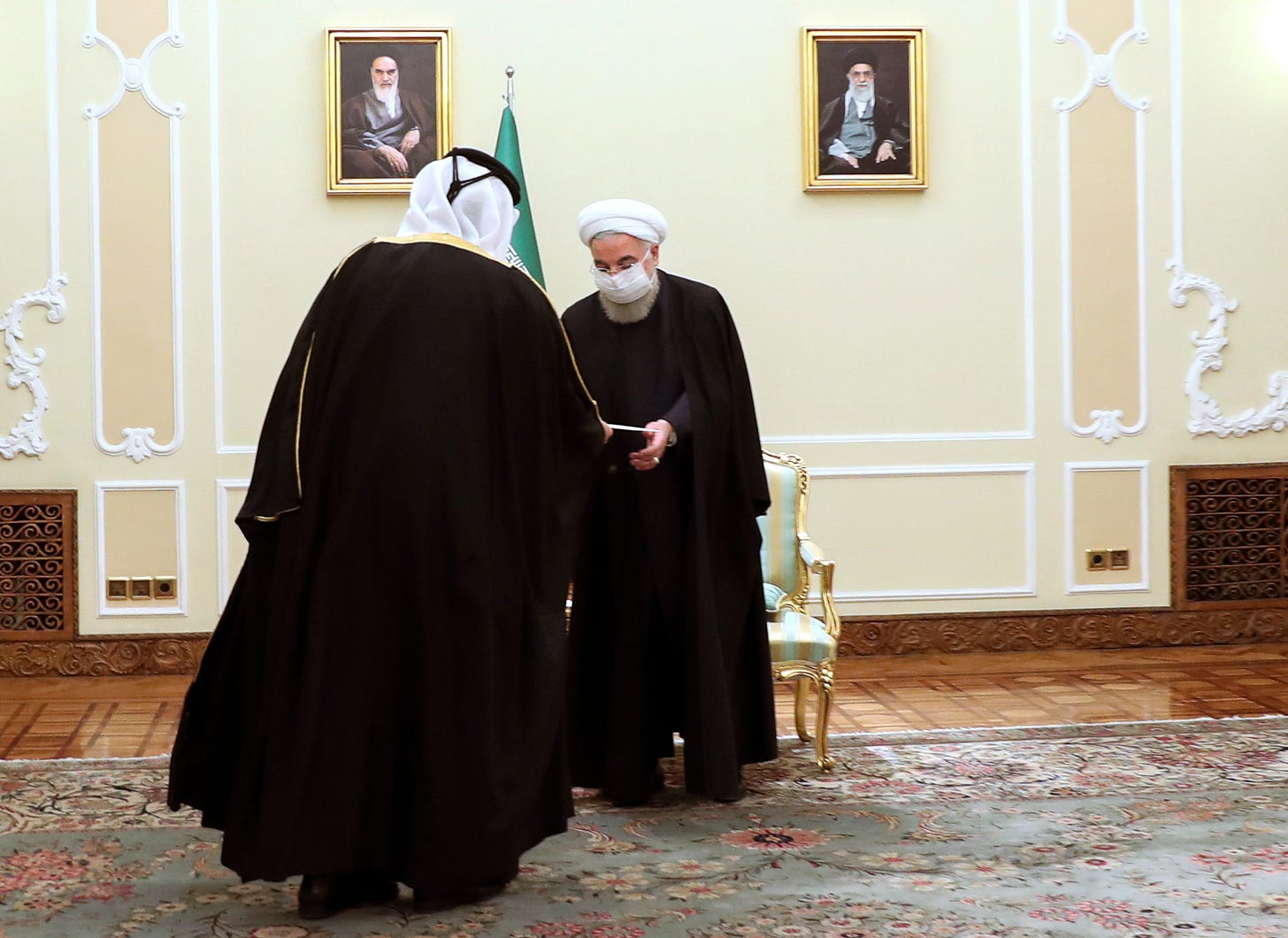Biden admin shrugs off Iranian deadline
As Iran announces it will cease implementing Additional Protocol on Feb. 23, the Biden administration says it is still consulting with allies and Congress

In a sign that some Iran experts said reflected the Iranian perception that it is taking the Biden administration too long to make a move towards returning to the Iran nuclear deal, Iran’s envoy said Monday he’d informed the UN atomic watchdog agency that Iran would cease voluntary implementation of the Additional Protocol on February 23.
“Act of Parliament will be executed on time (23 Feb) and the IAEA has been informed today to ensure the smooth transition to a new course in due time,” Iran’s Ambassador to the International Atomic Energy Agency (IAEA) Kazem Gharibabadi tweeted on Monday (Feb. 15). “After all, goodwill brings about goodwill!”
The measure, which would cut off IAEA access to snap inspections in Iran, while keeping the agency’s extensive other verification and monitoring mechanisms of Iran’s nuclear program, is in accordance with legislation passed by Iran’s parliament in December following the assassination of an Iranian nuclear scientist, allegedly by Israel.
“It means that they have given up on the US doing anything,” one Iran expert in contact with the US administration, speaking not for attribution, said is how he interpreted the Iranian announcement. “I'm afraid they might be right.”
The Biden administration has repeatedly stressed that it is consulting with allies, partners and members of Congress as it formulates its Iran policy, and also noted that its Iran envoy Rob Malley only started in the job less than three weeks ago.
Since Malley got into position in late January, US consultations with the “E3”—the three European parties to the 2015 Iran nuclear deal, the UK, France and Germany – have taken off, a second regional expert, speaking not for attribution to discuss consultations with the parties, said.
In those consultations, the E3 are firmly united on a position that they want the US back in the JCPOA as soon as possible, the second expert understood.
While there have been a number of discussions back and forth between E3 political directors and Malley, the technical/working level discussions are still pending, primarily because the overall policy position was still being deliberated in Washington.
Publicly, the Biden administration has signaled that it won’t be rushed or flummoxed by Iranian threats to cease snap inspections next week.
“I will say that on February 21st or February 22nd,… the proposition, I suspect, will still be on the table that if Iran resumes full compliance with the JCPOA, that the United States will be prepared to walk that diplomatic path and to re-engage with the JCPOA ourselves,” State Department spokesperson Ned Price told journalists at the State Department on Feb. 10, referring to the acronym for the formal name of the 2015 Iran nuclear deal, the Joint Comprehensive Plan of Action. “Right now, we are in the process of taking part in those consultations with partners, allies, members of Congress on the specific path ahead.”
“I think the tendency on the part of some actors to take part in public posturing is just not something we want to do,” Price said. “We have been very clear about what we believe is possible with the formulation of compliance for compliance: Iran resumes its full compliance with the 2015 Joint Comprehensive Plan of Action, the United States will do the same.”
But while the Biden administration has resisted being rushed by the Iranian deadline, internally there has been more of a debate. There are some who say, let this Feb. 21 timeline come and go, and not be moved by it, and others who argue for the US to show it is serious about a diplomatic initiative prior to Feb. 21.
For now, it appears that those arguing for the course of not being moved by the Iranian deadline have won out.
Biden is due to hold a virtual conference with fellow leaders of the Group of 7 (G-7) nations, hosted by the United Kingdom, and focused on the global response to Covid-19, on Friday (Feb. 19). But asked if one might expect the administration to give some more definitive statement on its intention to try to resume nuclear diplomacy with Iran, potentially in concert with other G7 allies, around that event, the first regional expert said he didn’t think the administration would be ready yet.
“Everything is being slow rolled and it’s starting to get very frustrating,” he said.
An Iranian government spokesman, meantime, clarified Tuesday that Iran ceasing implementation of the Additional Protocol next week does not mean that it is ceasing cooperation with the IAEA.
“Since the sanctions have not been lifted so far, the government and the Atomic Energy Organization of Iran (AEOI) are obliged to suspend the voluntary implementation of the Additional Protocol,” Iran government spokesman Ali Rabiei said in a weekly press conference on Tuesday.
“Iran is a member of the Safeguards, and based on its commitments, the majority of inspections – namely the ones that do not fall within the framework of the Additional Protocol – will remain in place,” Rabiei said. “Therefore, halting the voluntary implementation of the Additional Protocol does not mean halting cooperation with the IAEA.”
“After February 21, the situation returns to pre-JCPOA status,” Iran’s Ambassador to the United Nations Majid Takht-Ravanchi told EuroNews’s Saeid Jafari in an interview Tuesday.


